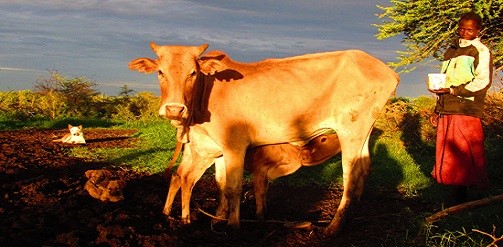Livestock, Livelihoods and Health was an interdisciplinary, One Health, research programme exploring diseases that can be transmitted from animals to people (known as zoonoses). Fieldwork took place in the Arusha region of northern Tanzania.

Zoonoses affect the health of people and animals, can damage development prospects and add to the poverty burden of developing countries. The Livestock, Livelihoods and Health programme comprised three inter-connected research projects which contributed evidence to increase our understanding of:
- The social, environmental and economic drivers of three zoonotic diseases – brucellosis, Q fever and Rift Valley fever – in livestock and people.
- Zoonotic disease risk from meat, and especially from Campylobacter and non-typhoidal Salmonella.
- The spread and control of brucellosis.
This evidence base is now helping to inform new strategies for zoonotic disease control and elimination in Tanzania.
Read the following case stories from the programme:
- Community interventions identified as pragmatic approach to zoonotic disease control in Tanzania
- Research reveals the wider picture of food-borne disease
- Sheep and goats pinpointed as source of human brucellosis in northern Tanzania
The programme was led by the University of Glasgow and funded under the Zoonoses and Emerging Livestock Systems (ZELS) initiative.
